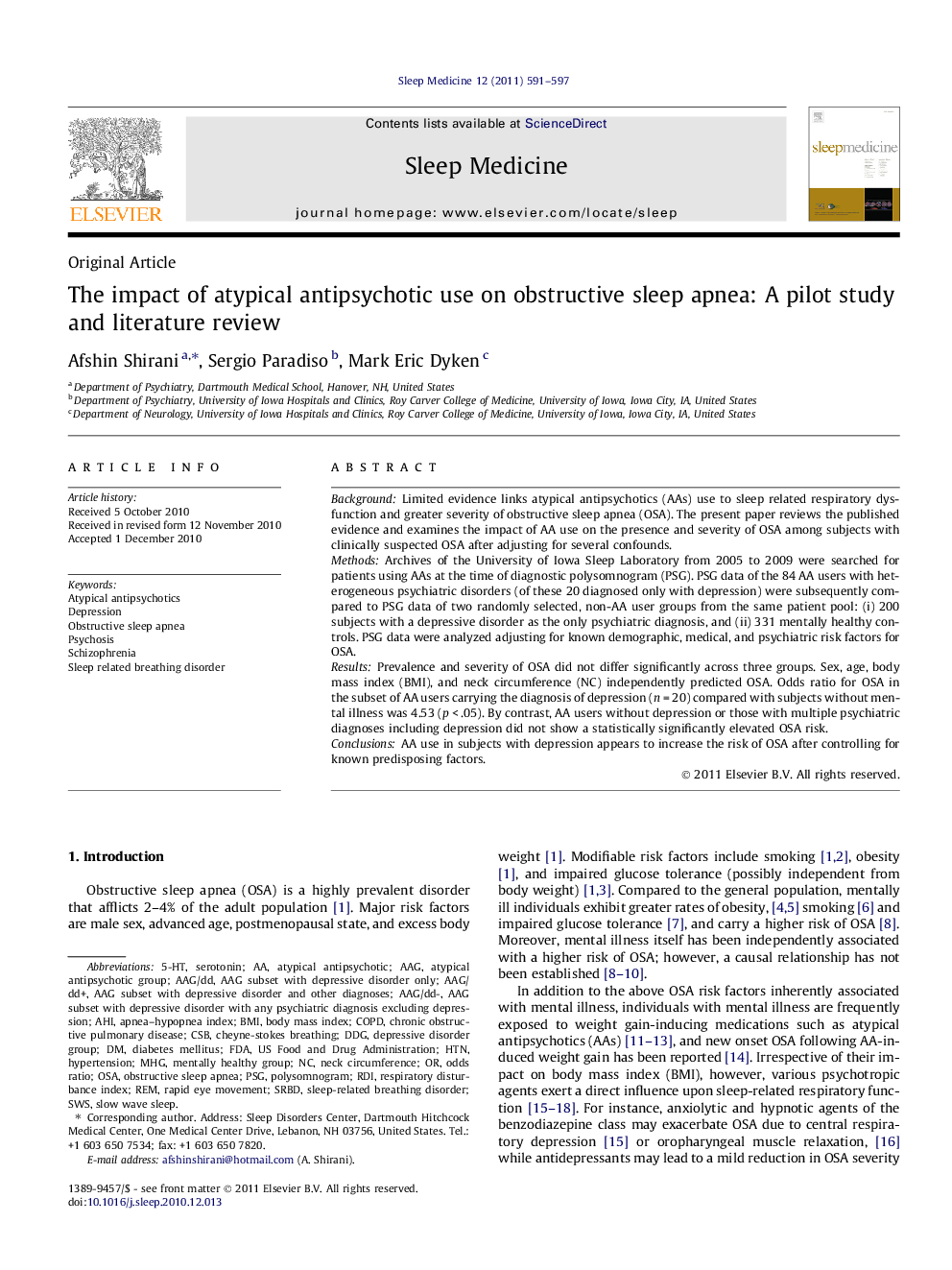| کد مقاله | کد نشریه | سال انتشار | مقاله انگلیسی | نسخه تمام متن |
|---|---|---|---|---|
| 3176842 | 1200282 | 2011 | 7 صفحه PDF | دانلود رایگان |

BackgroundLimited evidence links atypical antipsychotics (AAs) use to sleep related respiratory dysfunction and greater severity of obstructive sleep apnea (OSA). The present paper reviews the published evidence and examines the impact of AA use on the presence and severity of OSA among subjects with clinically suspected OSA after adjusting for several confounds.MethodsArchives of the University of Iowa Sleep Laboratory from 2005 to 2009 were searched for patients using AAs at the time of diagnostic polysomnogram (PSG). PSG data of the 84 AA users with heterogeneous psychiatric disorders (of these 20 diagnosed only with depression) were subsequently compared to PSG data of two randomly selected, non-AA user groups from the same patient pool: (i) 200 subjects with a depressive disorder as the only psychiatric diagnosis, and (ii) 331 mentally healthy controls. PSG data were analyzed adjusting for known demographic, medical, and psychiatric risk factors for OSA.ResultsPrevalence and severity of OSA did not differ significantly across three groups. Sex, age, body mass index (BMI), and neck circumference (NC) independently predicted OSA. Odds ratio for OSA in the subset of AA users carrying the diagnosis of depression (n = 20) compared with subjects without mental illness was 4.53 (p < .05). By contrast, AA users without depression or those with multiple psychiatric diagnoses including depression did not show a statistically significantly elevated OSA risk.ConclusionsAA use in subjects with depression appears to increase the risk of OSA after controlling for known predisposing factors.
Journal: Sleep Medicine - Volume 12, Issue 6, June 2011, Pages 591–597